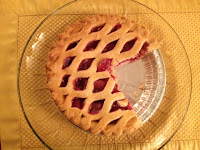by Marilyn Hilton
"Spring is sprung,the grass is riz,
I wonder where the flowers is."
(attrib. Ogden Nash) In 1996, the Academy of American Poets established April as National Poetry Month ® to raise awareness of poetry, poets, and media and organizations that support the heritage and culture of poetry.
In 1996, the Academy of American Poets established April as National Poetry Month ® to raise awareness of poetry, poets, and media and organizations that support the heritage and culture of poetry.April--m'gosh, that's only a week away! Will you be joining the hundreds of thousands of people in celebration? (I will--I'm excited just thinking about it!) If you want to participate but don't know how, here are 30 ideas, one for each day of National Poetry Month, to help you get into the groove.
Bonus before you start: If you can swing it, get tickets for the Poetry & the Creative Mind Gala on April 17 in NYC.
- Commit to writing a poem a day in April.
- If you're a prose writer, have one of your characters write a poem.
- Take 5 cliches and rewrite them as fresh images.
- Join a poetry writers group (online or in-person), and begin submitting your poems.
- Attend a poetry reading. Or read in a poetry reading.
- Sign up for an online or onsite poetry-writing class.
- If you are a poet, rewrite one of your poems in a different form.
- Try writing a poem in an "invented" poetry form. Shadow Poetry has information about these newer forms.
- Start a poem with another writer (or a group of writers), and do a ping-pong/round-robin poem: one person writes the first line or the first stanza, and the next person adds to it, and so on.
- Read one poem from a poetry collection each day. For example, The Best American Poetry 2012.
- Pull out some poetry that you wrote years ago and revise it.
- Retell a scene from your book in progress as a poem.
- Submit 1-3 poems to a journal or magazine.
- Create a meme of one of your poems and post it on your social media pages.
- Tweet one of your poems, one line at a time.
- Write a serial poem, and post it piece by piece, day by day on your website.
- Set a timer for 5 minutes, and write a free-verse poem of a childhood memory. Then revise it.
- Go for a walk, notice three things along the way. When you get home, write a poem about those three things.
- Enter a poetry contest.
- Organize a public poetry reading of local poets, including yourself.
- Subscribe to a poetry journal. Here's a great list to choose from.
- Write a 10-line poem that captures the essence of your favorite novel, movie, or artwork.
- Join a poets' organization, such as the Haiku Society of America.
- Take five lines from one of your poems. From each line, look up one word in a thesaurus. Then replace the word with one of the synonyms. Consider how the synonym changes the meaning of the line.
- Write a list of words you love because of the way they sound (for example, lucious, pomegranate, bumbling). Write a poem that includes all the words in your list.
- Read or reread a poem you studied in high school or college. Annotate it to pieces. What does it mean to you now that it didn't before?
- Write a poem about that poem.
- Plan a poet's retreat; attend an organized retreat or make your own.
- Assemble a chapbook of your poems.
- Plan how and when to publish your chapbook. The Poetry Society of America has a long list of chapbook publishers.
How will you celebrate National Poetry Month? Or how have you celebrated in the past?
Tweetables:
30 ways to celebrate National Poetry Month @TurboMonkeys Tweet this
April is National Poetry Month - How will you celebrate? @TurboMonkeys Tweet this
In April, tweet your poem a line at a time @TurboMonkeys Tweet this
National Poetry Month is a registered trademark of the Academy of American Poets.

















